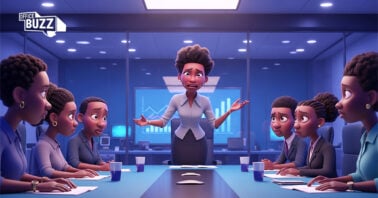Hiring leaders isn’t just about filling a vacancy; it’s about placing the right person in the right seat to drive impact. But too often, executive hiring relies more on chance than insight. That’s when the wheel starts spinning and companies unknowingly fall into recruitment roulette.
While many organisations search for “top talent,” it’s important to ask the deeper question: Is this the right kind of leader for this specific role, team, and stage of growth?
At the executive level, a hiring mismatch doesn’t just lead to underperformance; it affects strategy, culture, team morale, and revenue. A brilliant leader in one context can struggle in another, simply because the role wasn’t the right fit for their strengths, style, or focus.
That’s why it’s critical to recognise that senior roles are not one-size-fits-all. Each requires a different kind of thinking, energy, and leadership approach.
Here are five reasons why executive recruitment isn’t a one-size-fits-all.
Table of Contents
1. Unique Organisational Needs.
Every organisation has a unique set of needs that requires a unique set of leadership strengths. For instance, a CEO of a start-up company would need to have soft skills such as strong leadership, communication, adaptability and a strong understanding of the market they are in. If the tables were turned and this CEO were to be in a larger, well-grounded organisation, they might instead have more of a people skills person, as it requires managing a lot more employees. On the other hand, executives can be hired based on the company’s current business needs. A business looking to break even would probably focus on hiring a goal-oriented executive with negotiation skills.
2. Strategic Growth Importance

Let’s clarify this point with a familiar analogy: football. Jürgen Klopp took over as manager of Liverpool in 2015, replacing Brendan Rodgers. At the time, the team had lost the support of its fans; many had become passive, and some even stopped supporting the club altogether. Then came Jürgen Klopp, who revitalised the team and won eight awards, successfully reigniting the passion and support of the fans who had previously turned away.
Another relevant example is the 2015 African Cup, where Asamoah Gyan was highly anticipated to score. Every Ghanaian was hopeful for his success in bringing home a victory. Indeed, he delivered with a crucial last-minute goal.
Why was Klopp brought on board? How did they know he would achieve the desired results? The point here is that once a goal is established in a business or team context, it becomes clear who should be hired to achieve those results. Both Klopp and Gyan were strategically chosen for a specific reason: to meet the goal! Why, because of their core strengths.
3. Cultural fit.
Imagine Kwaku Mensah, a respected Ghanaian executive with a strong background in tech. After years of success as a software engineer and later scaling tech startups abroad, he was appointed as Managing Director of Jobberman, Ghana’s leading recruitment platform.He came in with bold ideas, a global mindset, and confidence. The board had high hopes, after all, his track record abroad showed an ability to drive growth and innovation. But after two years, it became clear things were off track. Sales were declining. Cash was bleeding. Morale was low.
Kwaku might have been a great tech leader, but he wasn’t a fit for the business culture or sector realities of recruitment in Ghana. He might have lacked;
- Understanding of the Local Recruitment Landscape
- Appreciation for Relationship-Driven Sales
- Ability to Translate Global Strategy to Local Execution
- Collaboration with Legacy Staff and Sales Teams
This is what cultural unfittedness is, but recruitment companies like Jobberman Ghana help businesses and decision makers to focus on their business, whilst they focus on getting the perfect cultural fit.
4. Industry-specific Expertise
Executive roles require more than just leadership skills; they necessitate leadership within specific contexts. For instance, an executive who excels in the fast-paced fintech industry may struggle in a manufacturing setting, where operational stability and long-term supply chain management are crucial. Industry-specific knowledge is not merely advantageous; it often distinguishes an effective leader from a costly misfit.
Take, for example, the role of a Chief Marketing Officer (CMO). A CMO in e-commerce must be highly data-driven, agile, and good at A/B testing and making quick adjustments to campaigns. In contrast, a CMO in the pharmaceutical sector needs to navigate complex regulatory frameworks, demonstrate scientific credibility, and build long-term brand trust. While both are CMOs, the skills and mindsets required for each role are vastly different.
5. Leadership Style Alignment

Not all leadership styles deliver the same results across different teams or company stages. Some executives lead through collaboration and consensus-building, while others are decisive and results-driven. Neither is inherently better, but their effectiveness depends on the context in which they operate.
Take a growing SME. It may need a transformational leader who thrives on change, risk-taking, and innovation. However, that leader might struggle in a more bureaucratic organisation where process, stability, and compliance are key to success.
That’s why successful executive hiring requires more than checking credentials. It involves assessing how a leader’s natural style aligns with the company’s operating model, communication culture, and pace of work. Handling this could be a headache for you as a business. Leaving it to the experts gives you;
- The right quality & niche talent
- Effectively filtered candidates through rigorous screening and skills assessment.
- Faster, smarter hiring decisions so you can focus on business growth
- Cost savings & risk reduction, no more expensive hiring mistakes
6. Leadership Fit Is a Strategy
Every executive role has its traits and zone of qualities, but that quality only shines when the executive candidate is placed in the right role. The more intentional the placement, the stronger the impact.
If you’re a hiring manager, HR lead, or business owner, the message is clear: Hire your next executive role with Jobberman Ghana. Book a free consultation today!





